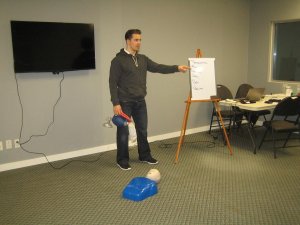
Hand, foot and mouth disease is a highly contagious viral illness that is fairly common to children below 10 years of age, but may also occur to adolescents and adults. It can be caused by different viruses from the enterovirus family but it is commonly caused by coxsackievirus A16 and can be spread through direct contact. It causes sores in the mouth and rashes on the hand, feet and sometimes other parts of the body thus appropriately naming the disease.
Although very contagious, it does not spread to animals to people. It should not be confused with foot and mouth disease, a viral disease that typically occurs in animals. Although the name may be highly similar, they are caused by two different viruses. By practicing good hygiene, risks of acquiring hand, foot and mouth disease decreases.
Hand, Foot and Mouth Disease Causes
Hand, foot and mouth disease can be spread from person to person. An infected person may have the virus in his/ her feces, blister fluid, and nose and throat secretions such as, saliva, sputum and nasal mucus. This can spread through direct contact by means of:
- Close contact by kissing, hugging, sharing cups and eating utensils
- Coughing and sneezing may release air aerosols containing that virus
- Touching objects or surfaces that have the virus
- Contact with fluid from blisters
- Contact with feces (especially during diaper change)
Hand, Foot and Mouth Disease Symptoms
It usually takes three to seven days before symptoms of hand, foot and mouth disease begin to manifest, as the virus incubates for the same amount of days. Symptoms usually begin in the throat and eventually lead to systemic symptoms.
- Sore throat
- Painful sores in the throat, mouth and tongue
- Rashes on the hands, soles of the feet, groin and diaper area that are not always itchy
- May sometimes have blisters
- If pressed, may be painful
- Loss of appetite
- Malaise
- Fever
- Headache
Hand, Foot and Mouth Disease First Aid Management
No specific treatment is usually given to hand, foot and mouth disease a victim, however, the main goal of management of this disease is to relieve of symptoms that may occur. This disease is rarely serious and typically mild with symptoms usually disappearing in a week.
- Treat fever aptly. Take acetaminophen or ibuprofen to treat fever. Do not give aspirin to children. To learn how to treat every day medical scenarios such as fever, especially in children, enroll in Standard Childcare First Aid Courses.
- Drink plenty of fluids to avoid dehydration. Children are preferred to drink cold milk products. To learn about complications and treatment of dehydration, enroll in First Aid Courses.
- Rinse the mouth with ½ teaspoon of salt in one glass of warm water. Do not swallow.
- If there is itching, avoid scratching the rashes.
- No vaccine is yet available for hand, foot and mouth disease.
